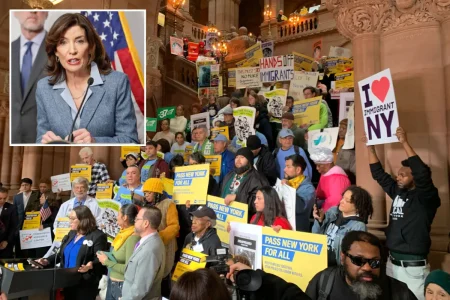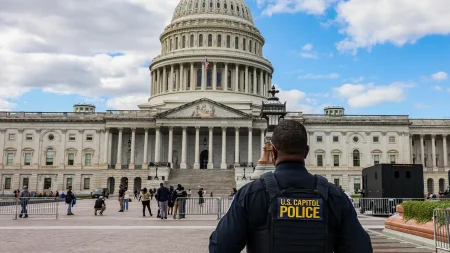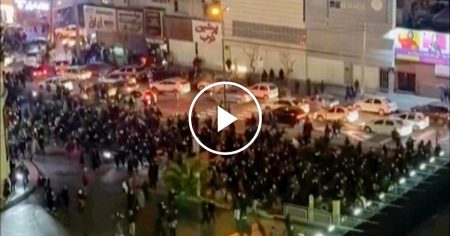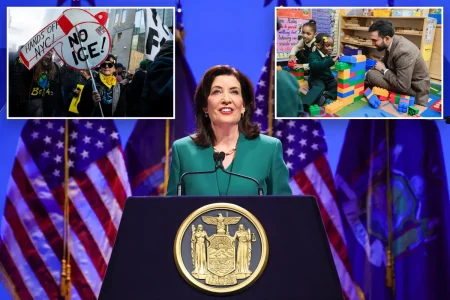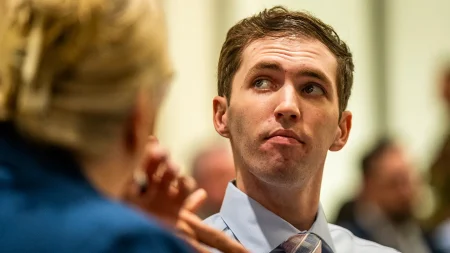Israeli Nation Unites in Hope and Determination as Hostage Deal Prospects Emerge
Across Israel, a wave of emotion is sweeping through cities and towns as families, friends, and strangers gather in unprecedented numbers to demand action for the release of hostages held by Hamas since October 7th. The rallies have grown in both size and urgency, reflecting the nation’s collective anguish over the fate of loved ones held captive for more than seven months. From Tel Aviv’s bustling squares to Jerusalem’s ancient streets, Israelis from all walks of life stand shoulder to shoulder, holding photographs of the missing and signs bearing simple yet powerful messages: “Bring Them Home Now” and “Time Is Running Out.” These gatherings represent more than protests; they embody a national consensus that transcends the political divisions that typically characterize Israeli society. As one mother of a captive soldier told the crowd with tears streaming down her face, “We cannot sleep, we cannot breathe, knowing our children are suffering in darkness. This is not about politics anymore—this is about humanity.”
The timing of these demonstrations holds particular significance as Israel’s security cabinet prepares for its first meeting since Hamas signaled acceptance of a new cease-fire proposal. The framework, mediated by Egyptian and Qatari officials with American support, represents the most promising opportunity yet for a breakthrough in negotiations that have repeatedly stalled amid violence and mistrust. For families of the hostages, this diplomatic movement offers a fragile lifeline of hope after months of agonizing uncertainty. “Every day that passes is another day of torture—not just for those held captive but for all of us waiting at home,” explained the father of a 23-year-old woman abducted from the Nova music festival. The proposed agreement would reportedly unfold in phases, beginning with the release of civilian hostages, particularly women, elderly, and those requiring medical attention, in exchange for Palestinian prisoners and a temporary cessation of hostilities.
The security cabinet meeting marks a critical juncture for Prime Minister Benjamin Netanyahu’s government, which faces mounting pressure both domestically and internationally. The administration must navigate complex considerations: the moral imperative to return citizens to their families, strategic military objectives in Gaza, and political calculations about coalition stability. Defense officials have presented assessments regarding the military implications of a temporary cease-fire, while intelligence agencies continue efforts to determine the precise condition and location of the hostages. For the families gathered outside government buildings, these deliberations represent life-and-death decisions. “They debate while our loved ones suffer,” shouted one protestor through a megaphone. “This is not a political game—these are our children, our parents, our siblings.” The demonstration’s organizers have emphasized that their movement transcends Israel’s traditional left-right divide, focusing instead on the universal value of human life.
The humanitarian crisis in Gaza provides a somber backdrop to these negotiations, with international aid organizations reporting catastrophic conditions for Palestinian civilians caught in the crossfire. Public health experts warn of disease outbreaks, while food security remains precarious across much of the territory. This suffering has complicated Israel’s military campaign and heightened international pressure for a resolution. Many rally participants acknowledge this dimension, with several speakers emphasizing that ending the hostages’ ordeal could also alleviate Palestinian civilian suffering. “We are not enemies of the people of Gaza,” said one former military officer whose son remains in captivity. “Our enemy is Hamas, which has brought suffering to both Israelis and Palestinians. A deal that brings our people home and allows humanitarian aid to flow freely would serve both populations.” This perspective reflects a growing recognition among many Israelis that military operations alone cannot resolve the crisis, and that diplomatic solutions, however difficult, must be pursued.
The hostage crisis has transformed Israeli society in profound ways, bringing to the surface deep questions about national identity, security, and values. Communities that once felt secure now grapple with trauma and vulnerability, while families of the captives have become reluctant public figures, thrust into a spotlight they never sought. Psychological experts describe a nation experiencing collective trauma, with particular concern for children witnessing their parents’ distress and fear. Yet amid this suffering, remarkable expressions of solidarity have emerged. Volunteers staff support centers for hostage families around the clock, preparing meals, offering counseling, and handling practical matters while relatives focus on advocacy. Artists have created powerful tributes—murals, songs, and installations—that keep the hostages’ faces and names in public consciousness. “We will not allow them to be forgotten,” vowed one organizer at a vigil in Haifa. “Each person in captivity is a world entire, with dreams and talents and people who love them desperately.”
As dusk falls over the demonstrations and families light memorial candles that illuminate photographs of their loved ones, the question hanging in the air is whether this moment will indeed mark a turning point. Previous hopes have been dashed, negotiations have collapsed, and the anguish has only deepened with time. Yet there remains a stubborn, quintessentially Israeli determination to believe that this time might be different. “Hope is not optional for us—it is essential,” explained an elderly man whose grandson has been held since October. “We continue to hope because the alternative is unthinkable.” As the security cabinet deliberates and the world watches, these gathered Israelis—religious and secular, left and right, young and old—stand united in their most fundamental demand: that the value of human life must ultimately prevail over the logic of conflict. Their message resonates beyond politics, beyond borders, touching on universal truths about what we owe to one another as human beings. Whatever comes next, this profound demonstration of national unity in the face of tragedy has already written a powerful chapter in Israel’s story.






